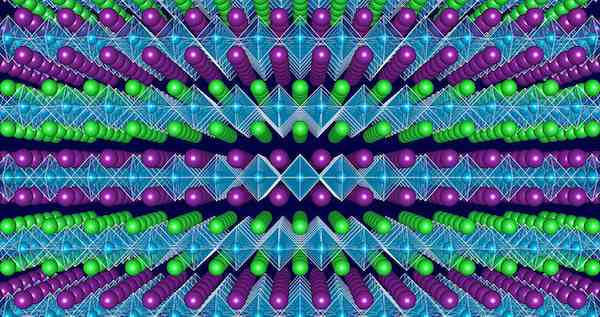CoorsTek acquires Dynamic-Ceramic
(Wall Street Journal) CoorsTek Inc., manufacturer of technical ceramics supplying critical components to high-technology markets, has acquired Dynamic-Materials (Ceramics) Ltd. (Crewe, England) and its wholly owned subsidiary Dynamic-Ceramic Ltd., a specialist advanced ceramic manufacturing, trading, and consultancy company. Established in 1987, Dynamic-Ceramic offers a variety of ceramic materials for a wide range of applications and markets, with a focus on the extreme-service conditions of the oil & gas industry. Known specifically for its expertise in extremely durable zirconias and zirconia blends, Dynamic-Ceramic has grown to offer aluminas, silicon carbides, boron carbides, aluminum nitrides, aluminum titanates, and composites as robust components of valves, seals, nozzles, drills, and cutting and forming tools.
Schott offers ultra-strong cover glass for military display and touch screen devices
Schott introduced its ultra-strong cover glass Xensation Cover, which is designed to be the strongest, scratch-resistant cover glass available. Xensation Cover has the potential to transform the US military’s use of PDAs, smart phones, laptops, and other devices by keeping mobile technology devices operable and displays readable in the field. The cover glass can be produced in any size and a variety of thicknesses to meet any handheld device or display screen specifications, while meeting U.S. Armed Forces requirements, including MIL-STD-810 for sand and dust. The patented technology behind the glass is a floated and chemically-strengthened aluminosilicate glass, which has a very high bending strength, drop ball resistance, and a compressive strength of more than 900 MPa. The cover glass can be as thin as 0.55 mm, making it suitable for use in thin handheld devices, as well as ruggedized laptops and GPS units. Xensation Cover glass is also resistant to chemicals and environmental influences.
Amorim and O-I launch wine packaging innovation
The two global leaders in wine packaging, Amorim and O-I, have launched of Helix, an innovative cork-glass wine packaging solution for the popular premium, fast turnaround still wine segment. The new ‘twist to open’ concept combines an ergonomically-designed stopper made from cork and a glass bottle with an internal thread finish in the neck, creating a high performing and sophisticated wine packaging solution. Helix combines all the benefits of cork and glass—quality, sustainability and premium image with user-friendly, re-sealable convenience. It can be quickly and easily implemented by wineries with only a minor adjustment to the existing filling lines. Extensive testing of wine packaged in Helix glass bottles with cork stoppers showed no alteration in terms of taste, aroma, or color.
Startup uses novel materials based on plasmonic effects
(MIT Technology Review) A startup focused on developing novel optical materials received $1 million in first-round funding last month from the venture capital firm Quantum Wave Fund to advance its early-stage technology. Nano-Meta Technologies, based in West Lafayette, Indiana, is developing prototype hard drive heads that could improve the storage density of magnetic disk drives, as well as nanoparticles that could be used in light-driven cancer therapies. Nano-Meta Technologies was spun out of the Purdue University labs of Vladimir Shalaev and Alexandra Boltasseva last year. The company is developing nanostructured compounds that can concentrate light through plasmonic effects to surmount a hurdle called the diffraction limit, which affects the resolution of light microscopes and lithography. Shalaev and Boltasseva have been working on controlling plasmonic effects in various ways, not just through the structure and chemistry of materials. Boltasseva has developed new plasmonic materials, including titanium nitride and metal oxides, that can be tuned chemically and are compatible with existing manufacturing methods.
Report: Global rare earth metals market $8.19 billion by 2018
(PR Newswire) Transparency Market Research has released a new report that predicts rare earth metals demand—worth $3.93 billion in 2012—will reach $8.19 billion by 2018. That’s a healthy 13 percent annual growth rate. “Rare Earth Metals (Lanthanum, Cerium, Neodymium, Europium, Yttrium, Scandium, Terbium & Other Key Elements) Market – Global Industry Analysis, Applications (Magnets, Catalysts, Metallurgy, Phosphors, Ceramics & Others), Size, Share, Growth, Trends and Forecast, 2012 – 2018,” expects increasing demand in permanent magnets, batteries, catalysts, electronics, and other applications to drive demand over the next five years.
Cinven acquires Rockwood’s CeramTec unit
European venture capital group Cinven recently acquired the CeramTec division of Rockwood Holdings Inc., Princeton, N.J. CeramTec ‘s proprietary product portfolio includes hip joint prostheses components, including the Biolox brand; high speed cutting tools; and ballistic ceramics for armor. With 2012 revenues of €425 million, the company’s main operations are located in Plochingen, Germany; it employs more than 3,000 people at 18 facilities worldwide. Rockwood said it would use proceeds from the $2 billion transaction to focus on its metals business and return cash to shareholders.
Global medical ceramics report available
(Reportlinker.com) The global medical ceramics market will grow at a rate of 4.25 percent annually through 2016, says a new market report from TechNavio. According to “The Global Medical Ceramics Market 2012-2016,” key applications driving the growth will be cosmetic dentistry and hip replacement implants. The report covers the Americas, Europe, and Asia regions and proides information on key vendors, market trends and drivers, opportunities, and challenges to market growth.
Author
Eileen De Guire
CTT Categories
- Energy
- Glass
Related Posts
Ceramics and glass business news of the week
January 23, 2015
News from the glass and refractory ceramics world
January 18, 2015


